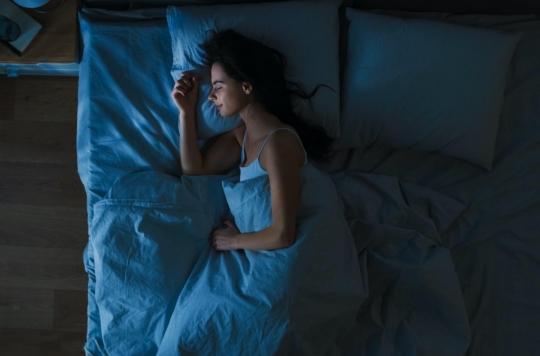Good quality nights contribute to women’s sexual health. They reduce the risk of sexual dysfunction.

- Sleep disorders have an impact on the risk of sexual dysfunction in women
- The link between menopause and sleep disorders is also involved in these dysfunctions
We spend about a third of our life sleeping. It may seem like a waste of time to some, in reality, sleep is a fundamental part of being healthy. When it is of poor quality, the risk of cardiovascular diseases, accidents and diabetes is higher. A study of The North American Menopause Society (NAMS) adds another item to this list. According to his conclusions, sleep contributes to the sexual health of women, those who sleep poorly are more likely to suffer from dysfunctions.
Sleep better or sleep more?
These disorders affect many women, often from their forties. According to this research, 43% of women claim to suffer from sexual disorders at this time of life. At the same time, this age is associated with more sleep problems. At the time of menopause, nearly half of women are affected. Before that, about a quarter suffered from insomnia. Although several studies have looked at the links between these two types of disorder, the evidence was insufficient to draw conclusions. In this new research, NAMS scientists recruited more than 3,400 women, whose median age was 53. Using different tools, they assessed the potential links between the quality of their sleep and their sexual functions. According to their findings, insufficient quality sleep was associated with a higher risk of sexual dysfunction in women. On the contrary, when women slept well, they generally had sexual activity. On the other hand, the duration of sleep had no impact. “These are two common problems in women and addressing them, and taking care of them could improve their quality of life.“, underlines the main author of this study, Dr. Stephanie Faubion.
What is sexual dysfunction?
The concept of sexual dysfunction refers to several disorders, characterized by a decrease in sexual activity. In women, this can result in a lack of desire, sexual arousal disorders or vaginismus, a contraction of the vagina preventing penetration. Medication can contribute to the appearance of these disorders, if this is not the case, psychotherapy generally makes it possible to resolve them.

.















